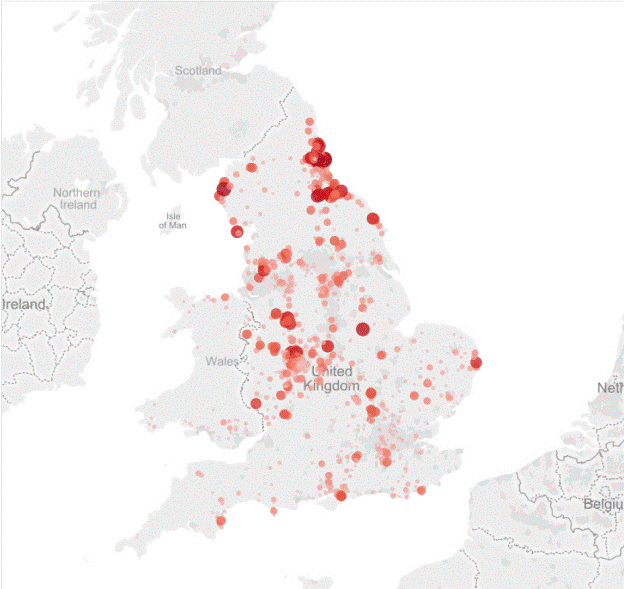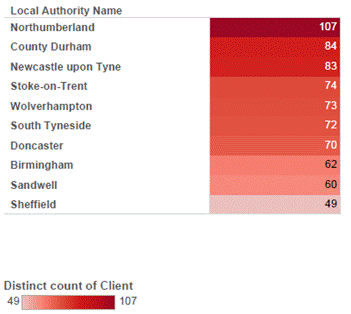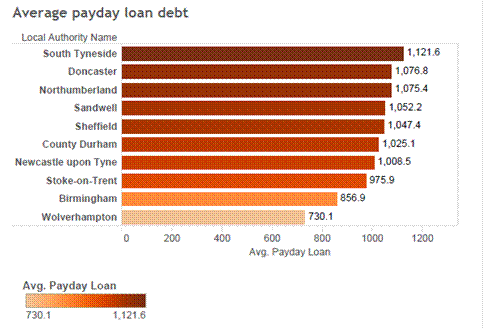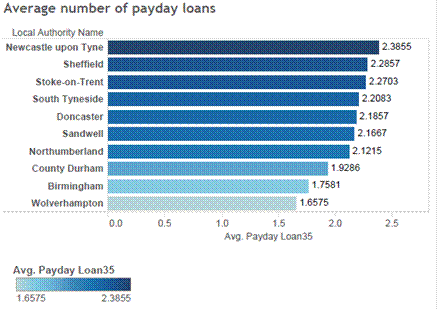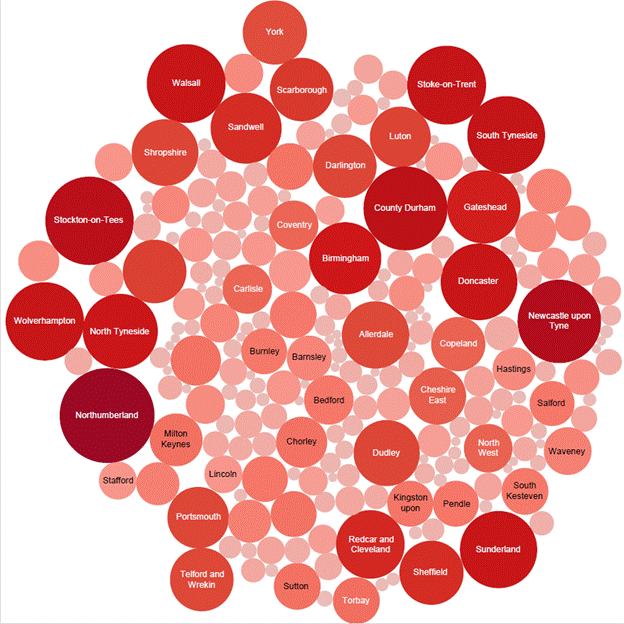Cap on the cost of credit will help fight exploitative payday lending
New evidence fro Citizens Advice reveals North East and West Midlands are payday loan hotspots
The cap on the total cost of credit is an important step towards protecting consumers from the debt trap of excessive interest rates and charges, says Citizens Advice. Today, the Financial Conduct Authority, which regulates payday lenders, has announced a 100 per cent cap of the total cost of credit, meaning that from January no borrower will have to pay back more than double their original loan.
New research fro Citizens Advice, out today, reveals the payday loan hotspots accross England and Wlaes. In depth analysis of a sample of 30,000 serious debt clients, 3,500 of whom had payday laons, finds:
- North East and West Midlands are ayday loan hotspots
- The top three areas for clients with payday loans are in the North East. Northumberland has 107 cases, County Durham has 84 cases and Newcastle upon Tyne has 83 cases
- People in South Tyneside have the highest average payday loan debt at £1,122
- People in Newcastle upon Tyne have more payday loans per person than anywhere else in the country
Gillian Guy, Chief Executive of national charity Citizens Advice said:
“This cap means payday lenders can no longer force borrowers into an endless spiral of debt. This is a real improvement. People have sought help from Citizens Advice after their payday loan of £300 ballooned to over £2,500 worth of debt. The cap will help to stop these serious cases in which sky high interest and extortionate fees turn a small loan into an unmanageable debt.
“This is a step towards fixing a market that hasn't been working for consumers. Payday loan firms should only lend to people who they know can afford to pay back the debt, and must point those who can’t towards free debt advice.
“People who are in a position to borrow need a responsible short-term credit market. A vital part of this is greater choice. High street banks should seize the opportunity to meet demand and offer their customers a better alternative to payday loans.
“The FCA should monitor the cap, including whether it is set at the right level, to make sure it is working for consumers. They must also keep a close eye on whether lenders are sticking to the rules. Problems with high cost credit go well beyond payday loans. We’re concerned about the serious problems people are reporting with products like logbook and guarantor loans. As the new rules force payday lenders to treat customers more fairly, these other areas must be given more attention."
The new data released today is shown in the following charts.
This map shows the geographic spread of payday loan clients by local authority area with a high concnetration of payday loan debt in the North East and West Midlands.
The top three areas for clients with payday loans are in the North East.
People in South Tyneside have the highest total payday loan debt at £1,122
People in Newcastle upon Tyne have the highest average number of payday loans per person in the country (2.4).
Every working day Citizens Advice Bureaux help with 100 new problems caused by payday loans.
Analysis of 30,000 of the most serious debt cases found that young people were more likely use short term credit than other kinds of borrowing. Sixty two per cent of 17-25 year olds who use high cost credit and have come to Citizens Advice with a debt problem used payday loans.
Between April and August this year, Citizens Advice payday loans tracker found that:
•19% of people were told how to get free debt advice
•26% were treated sympathetically by their payday lender if they ran into difficulty
•22% were made aware of the risks of extending a loan
•Just half were asked any questions about their finances before being given a loan.
Earlier this year, our Freedom of Information request to the HM Courts and Tribunals Service showed that the number of logbook loans taken out this year was on track to reach 60,000, up 61% from 2011. This is based on 10,000 loans registered with the courts service in January and February this year.
Notes to editors:
- The Citizens Advice service comprises a network of local bureaux, all of which are independent charities, the Citizens Advice consumer service and national charity Citizens Advice. Together we help people resolve their money, legal and other problems by providing information and advice and by influencing policymakers. For more see the Citizens Advice website.
- The advice provided by the Citizens Advice service is free, independent, confidential, and impartial, and available to everyone regardless of race, gender, disability, sexual orientation, religion, age or nationality.
- To find your local bureau in England and Wales, visit citizensadvice.org.uk. You can also get advice online at adviceguide.org.uk
- You can get consumer advice from the Citizens Advice consumer service on 03454 04 05 06 or 03454 04 05 05 for Welsh language speakers
- Citizens Advice Bureaux in England and Wales advised 2.3 million clients on 5.4 million problems from October 2013 to September 2014. For full 2013/2014 service statistics see our quarterly publication Advice trends
- Citizens Advice service staff are supported by more than 21,000 trained volunteers, working at over 3,000 service outlets across England and Wales.


